
Heritage
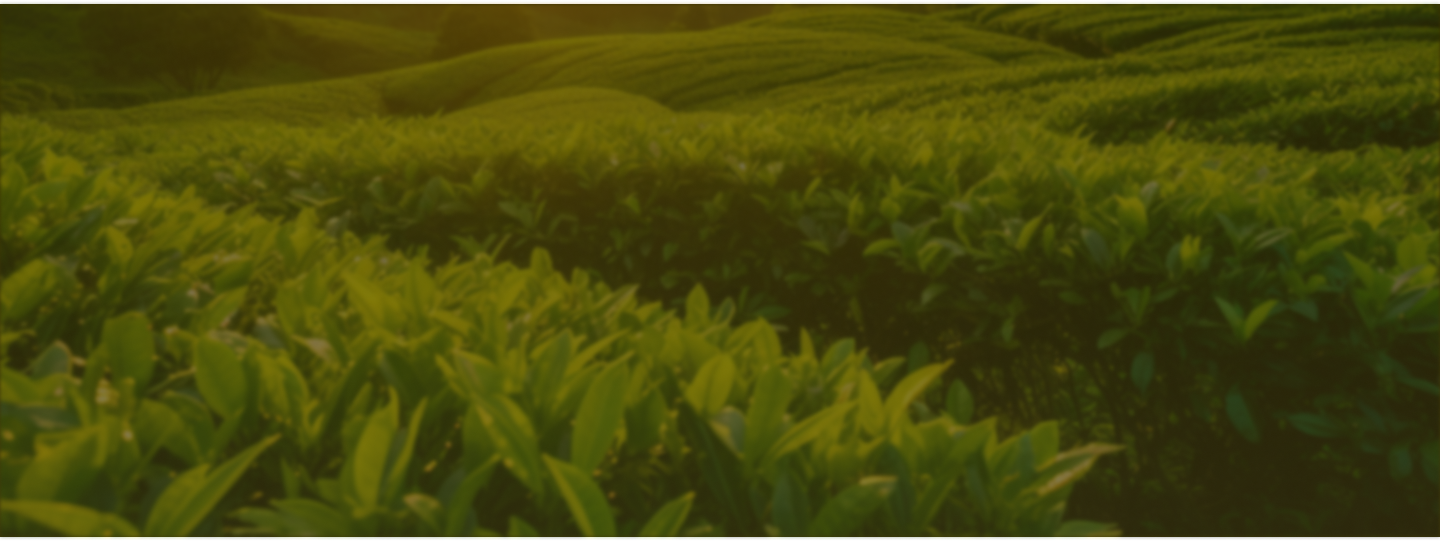

The extraordinary heritage of tea dates back many centuries, Myanmar tea history according to a tea-themed poem composed by U Ponn Nya (an ancient famous poet), says that the Danu and Palaung ethnic people cultivated the tea plants to be presented to King Duttaaung who ascended to throne in AD739 in Thayaekittaya era. Tea has been considered the royal drink since the 11th century in Myanmar.
And yet globally it is only now beginning to be fully appreciated as it becomes better known. Initia... Read More
Download File About Myanmar Tea
A delicay to be discovered
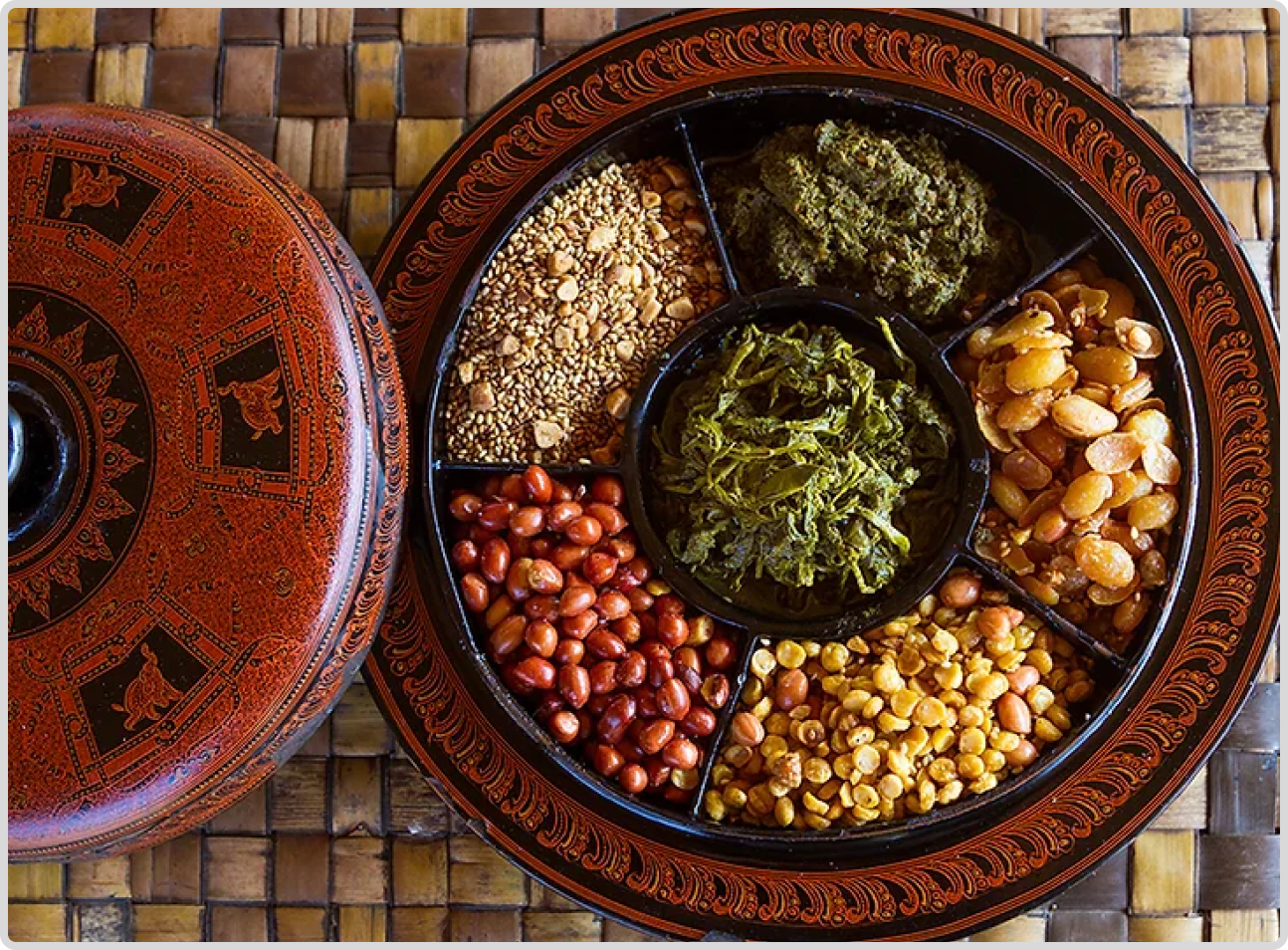
The art of eating tea
Surely you have already drunk many cups of tea. But have you ever eaten tea? If not, then it's time to try it. And Myanmar is more or less the only place in the world to do that. When you are visiting a private home, paying respects to Buddhist monks in a monastery or looking for handcrafts in a traditional shop - it islikely that you are offered fermented tea (laphet-so). Often it is served in a beautiful lacquerware... Read More
Making peace with fermeted tea (latphet-so)
However, Ahlu-laphet is more than a snack. It is a symbol of generosity, goodwill and hospitality. Engagements, house-warming ceremonies, funerals - fermented tea is always part of it. As a proverb says: “Offer fermented tea to gain favours”, it plays a significant role in social life. There is hardly any official function or cultural ceremony, where fermented tea leaves are not given. Parents of the wedding couple send parcels of pickled tea to their relatives and friends to invite them to the marriage ceremony of their children.
In the past the leaves were even a peacemaker: Kings offered Ahlu-laphet to their enemies as a gestu... Read More
Laphet at a wedding
They [bride and groom] are also supposed to feed one another, in love-bird fashion, but the chewing of betel and salad tea, let-hpet, by the parents on both sides - the national way of ratifying any contract, legal or commercial - is the really effective rite”
Sir J. George Scott, Burma: a Handbook of Practical Information, London 1906, P. 83
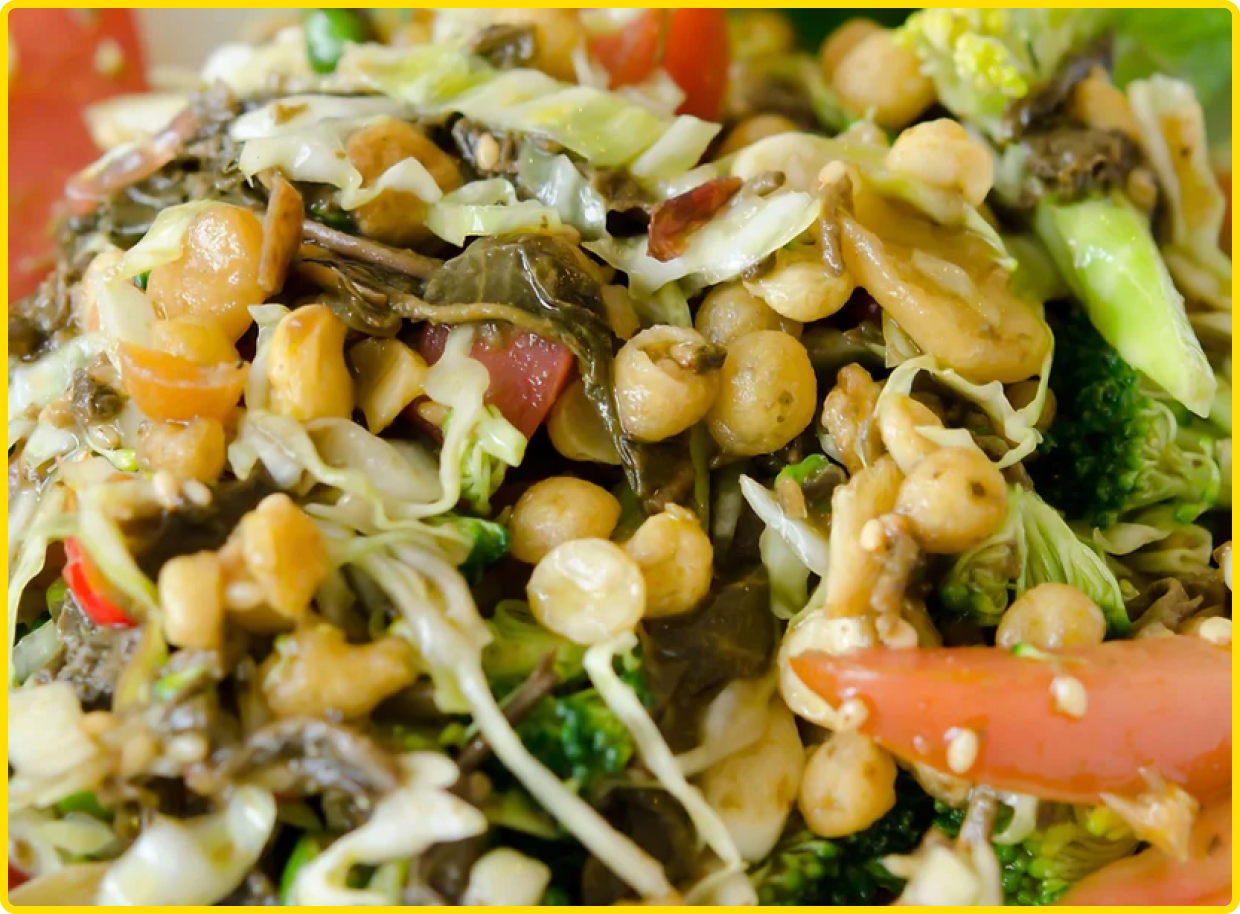
A great salad
But there is another way of eating pickled tea: as salad. Typical ingredients for laphet-thoke, as this dish is called, are fermented tea leaves, mixed with fresh, thinly sliced tomatoes, garlic, green chili, dried prawns, sesame or peanut oil, and lime juice. As Myanmar writer Ba Than describes it: “No party nor feast, nor even a formal festivity is complete in Burma without Laphet-thoke.” (Myanmar's Attractions and Delights, Yangon 2003).
You can find varieties of fermented tea salad like the spicy and sour chinsat laphet-thoke, danyhin... Read More
Recycling tea
The Dutch sailors had their own way of eating tea leaves. As Dutch missionary, Fr. Philippus Baldæus (1632-1671) observed: “The Tea [after being used in water] was reused by our people for salad, together with vinegar, oil and pepper, and it is not of a bad taste at all”
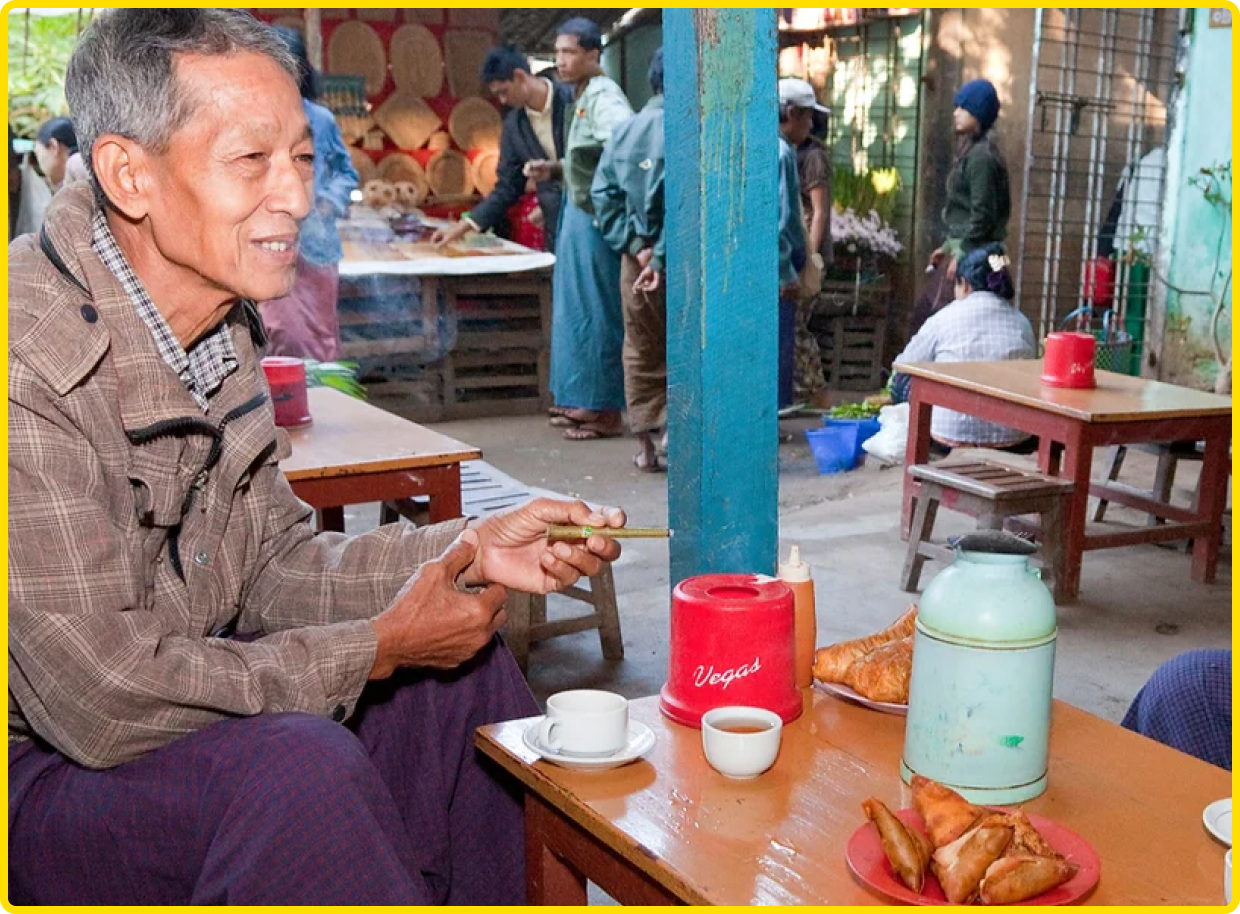
Tea shops - Myanmar's living heritage
Low wooden stools around a short square table, with some longyi-clad men sitting on them sipping cups of tea. This is a common sight in traditional tea shops all over Myanmar. Tea shops are ubiquitous and come in all shapes and sizes. Some are wooden huts with simple plastic stools and knee-high tables, others are fancy halls with big TV screens to show the latest soccer game. But the atmosphere is everywhere the same: A smooch like sound catches the attention of the young waiter. And moments later he serves a cup of steaming laphet yay - boiled black tea served wi... Read More
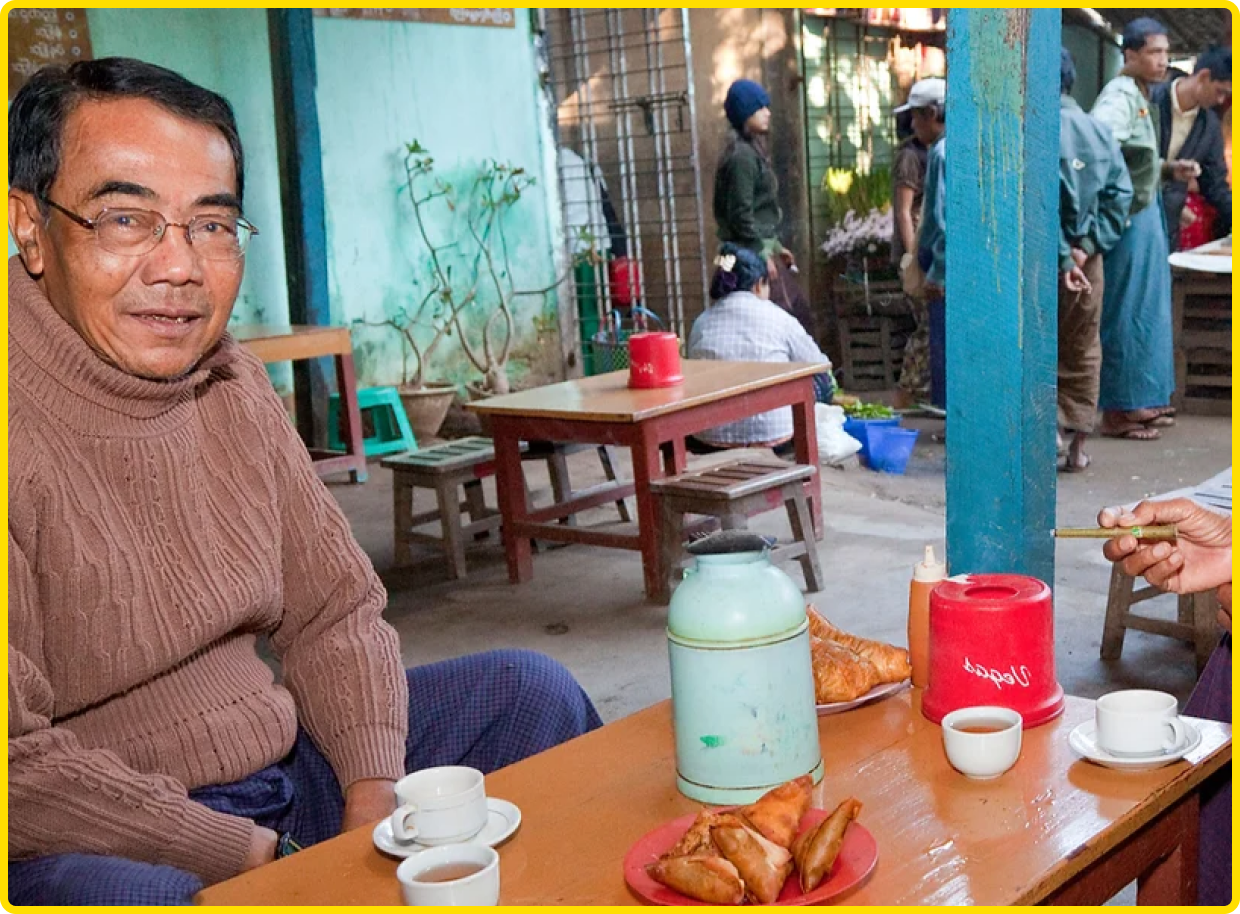
An endangered species
Tea shops in Myanmar are many things in one: a place to chat, flirt and discuss. Traditionally, this is where you can indulge your thoughts and make plans. In a way tea shops are a kind of parliament of the common people. But things are changing. Instead of people talking to each other, you find them more frequently sitting quietly together, each staring at their smartphones, watching video clips and chatting via their social media channels. In bigger cities, the young in particular prefer spending their leisure time in shopping malls, fast-food chains or coffee shops.
In order to keep their customers, many tea shops install TV screens to show football matches, TV sho... Read More
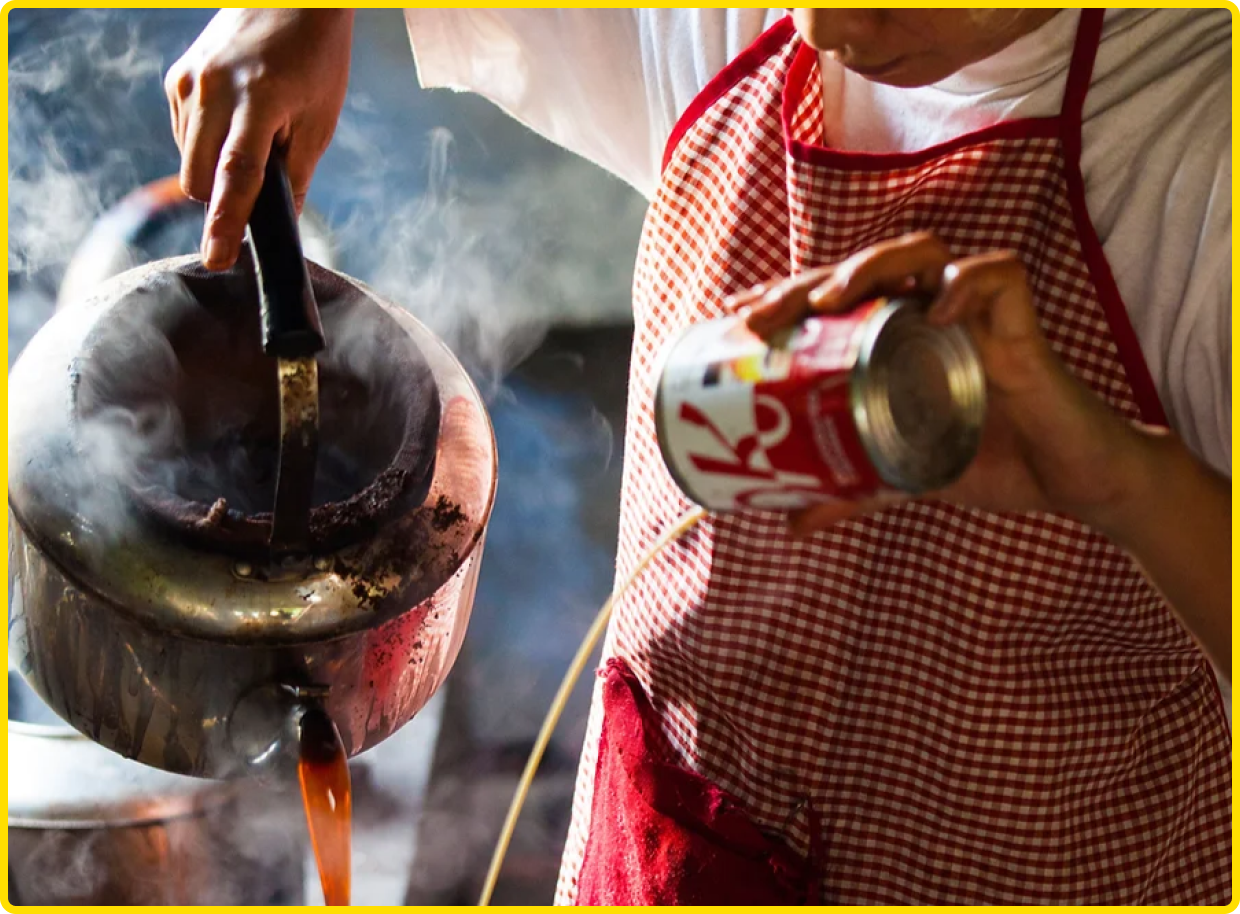
A place for all
Laphet Yay Sai, as the Myanmar people call their beloved tea shop, is a place for everyone. People from all walks of life are welcome here - be it a retired teacher catching up with his former colleagues, students sharing their homework before classes or a smart businessman having an early breakfast before starting his business trip. One of the reasons is that the drinks and meals are quite affordable.
Tea shops provide a space to exchange opinions, solve problems, share hopes and express dreams. Con... Read More